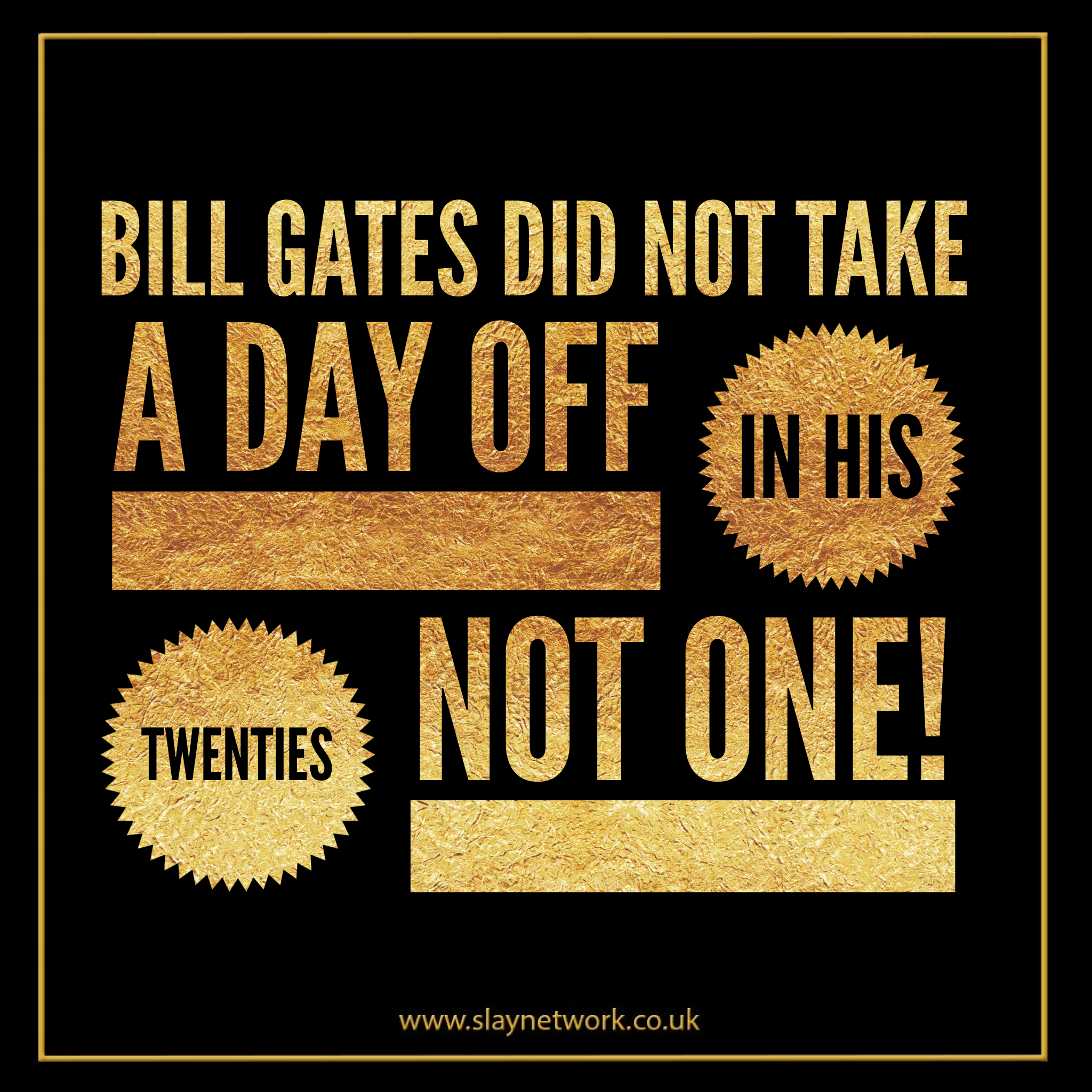There can be no progress, no achievement, without sacrifice, and a man’s worldly success will be in the measure that he sacrifices.” -James Allen, As a Man Thinketh
In his seminal book Rich Dad Poor Dad, Robert Kiyosaki recounts a common response he gets when he asks people why they aren’t open to lucrative real estate investments.
“When I speak to people about investing in real estate, they often tell me they’re not interested in real estate because they don’t want to fix toilets.
When someone says, ‘I don’t want to fix toilets,’ they’re saying that little problems like toilets are more important than their financial freedom.”
For some, a leaky toilet is enough of a reason to never attempt to achieve their goals.
If you are not willing to sacrifice your pride, comforts, or security, you will never achieve your highest level of success.
Your level of sacrifice directly determines your level of success.
Cynics Criticize. Winners Sacrifice.
“How much you improve is up to you.” Anders Ericcson,
Peak: Secrets From the New Science of Expertise
Achieving massive success requires countless leaps out of your comfort zone.
If you want to build an empire, you need to invest enormous amounts of time reading, learning, and experimenting. You can’t do that if you constantly oversleep and binge-watch Netflix.
If you want to develop a rock-hard, toned body, you need to invest enormous amounts of sweat, energy, and time working out. You can’t do that if you maintain an unhealthy, toxic diet of tempting junk food.
The individual who retorts, “I don’t want to fix toilets” at the prospect of a lucrative investment is choosing their pride and comfort instead of building potentially enormous wealth.
Their unwillingness to sacrifice their pride directly prevents them from experiencing potentially enormous wealth.
The individual who hates his job yet spends most of his free time on TV, partying, and sleeping in has only himself to blame. His level of sacrifice (very low) will always equate his level of success (very low).
On the other hand, the individual who is willing to do whatever it takes is likely to experience massive growth and success, even if they start out in the midst of the most unfortunate circumstances.
Here’s a personal example.
I started waking up at 6:00am every weekday morning to write, read, and develop my blog.
Those first few days sucked. I recall looking over at my beautiful wife snoozing gently in bed, wondering why the hell I was clutching a lukewarm cup of coffee trying to stay awake and blog at 6:20am.
I had to sacrifice those extra couple hours because I needed more time to build my empire.
I became willing to give up something “good” (sleeping in) for the prospect of something downright incredible (owning a lucrative personal business that brings in enough passive income so my wife and I can travel the world whenever we want).
Cynics criticize. Winners sacrifice.
Your willingness to sacrifice directly determines your level of success.
“Your level of success will rarely exceed your level of personal development, because success is something you attract by the person you become.” -Hal Elrod, The Miracle Morning
Living an Extraordinary Life Means Giving Up a Normal One
“If you want to live an exceptional and extraordinary life, you have to give up many of the things that are part of a normal one.” -Srinivas Rao
If you want to live a life no one else is, you must be willing to sacrifice what others are unwilling to give up.
Most people will never let go of their stranglehold on a few key factors, like a steady paycheck, a career that others approve of, and the safety of going along with the crowd.
But this unwillingness is exactly what prevents them from experiencing massive growth.
If you truly want to reach another level of success in any area of your life, you’ll need to make extraordinary sacrifices to get there. If you want a life no one else is living, you’ll need to start living like no one else.
In the words of financial guru Dave Ramsey:
“Live like no one else now, so later you can live like no one else.”
If you want to experience miraculous success, you need to live a life that relies on miracles to happen.
Most people will never make themselves this vulnerable. To put yourself in a position where it would take a miracle to achieve a goal is terrifying.
If the majority took a frank look at their goals, they’d probably recognize they actually aren’t that difficult. The truth is, their goals actually just extraordinary. The results won’t be that great, either.
Once you begin to say no to merely “good” opportunities, you’ll have a better eye for the “great” ones. And once you learn what a life characterized by largely “great” opportunities looks like, suddenly those sacrifices don’t seem like that big of a deal.
If it meant you could become 100% financially independent and live entirely on passive income, would you be more willing to give up sleeping in?
If it meant you could develop a lean, fit, extremely muscular body that makes you insanely proud of yourself, would you be more willing to stop eating ice cream?
“Greatness is not a function of circumstance. Greatness, it turns out, is largely a matter of conscious choice.” -Jim Collins, Good to Great
Most People Choose “Good” Opportunities and Miss Out On the “Great” Ones
“The difference between successful people and very successful people is that very successful people say ‘no’ to almost everything.” -Warren Buffet
The most successful people in the world are extremely practiced in one particular behavior:
They say no to almost everything.
Warren Buffet once said that for every 100 opportunities that come across his desk, he might say “yes” to only one of them.
This is the mindset of an individual who refuses to spend his time on anything less than the best possible scenario. This mindset is extremely rare, but incredibly effective.
When you say “yes” to one opportunity, that means you’re saying “no” to many others.
Most people are terrible at saying no. Sadly, all these merely “good” opportunities often cost months and years of your life that can never be regained, time that you should’ve spent working on your legacy.
Most people don’t want to give up the safety and comforts of what’s right in front of them. They don’t want to give up what they already know.
But in avoiding sacrifice, they sacrifice the most important scenario of all:
Their future.
If you are not willing to sacrifice “good” opportunities, you’ll never get a chance to come across a truly “great” one.
This is a key indicator of what separates ordinary individuals from truly extraordinary ones. Those who bide their time, remain poised under pressure, and wait are the ones that will seize the life-changing opportunities most people are too busy to see.
When my wife and I moved to South Korea to teach English for a year, there were over a dozen “good” opportunities I chose to decline: church drummer, private tutor, youth basketball coach, podcast founder, etc.
I was waiting for the right opportunity. It came along, and now I’m making a living as a writer, one of my deepest dreams I’ve ever had.
Say no the merely “good” opportunities so you can say “yes” to the rare great ones.
“Good is the enemy of great. And that is one of the key reasons why we have so little that becomes great. Few people attain great lives, in large part because it is just so easy to settle for a good life.” Jim Collins
In Conclusion
“He who would accomplish little must sacrifice little; he who would achieve much must sacrifice much; he who would attain highly must sacrifice greatly.” -James Allen
Your willingness to sacrifice directly determines your level of success.
If you only make small sacrifices, you will only ever achieve small success.
If you want to achieve an enormous goal like developing an incredibly strong body, owning a business, becoming an incredible parent and spouse, become financially independent, earning a Ph.D., etc…
You will need to make enormous sacrifices.
You receive what you put in. If you’re lazy and cut corners, you’ll receive results that mirror that level of commitment.
But if you seriously commit to achieving greatness and experiencing true success, you’ll need to give up many things that other’s won’t. This is a common characteristic among all incredibly successful people — they were willing to do what others weren’t.
Sacrifice is hard. No one said it would be easy.
But every enormous success requires enormous sacrifice.
Call To Action
If you want to become extraordinary and become 10x more effective than you were before, check out my checklist.
Click here to get the checklist now!
15 sacrifices you’ll need to make if you want to be a Billionaire
15 Signs you will be a Billionaire





